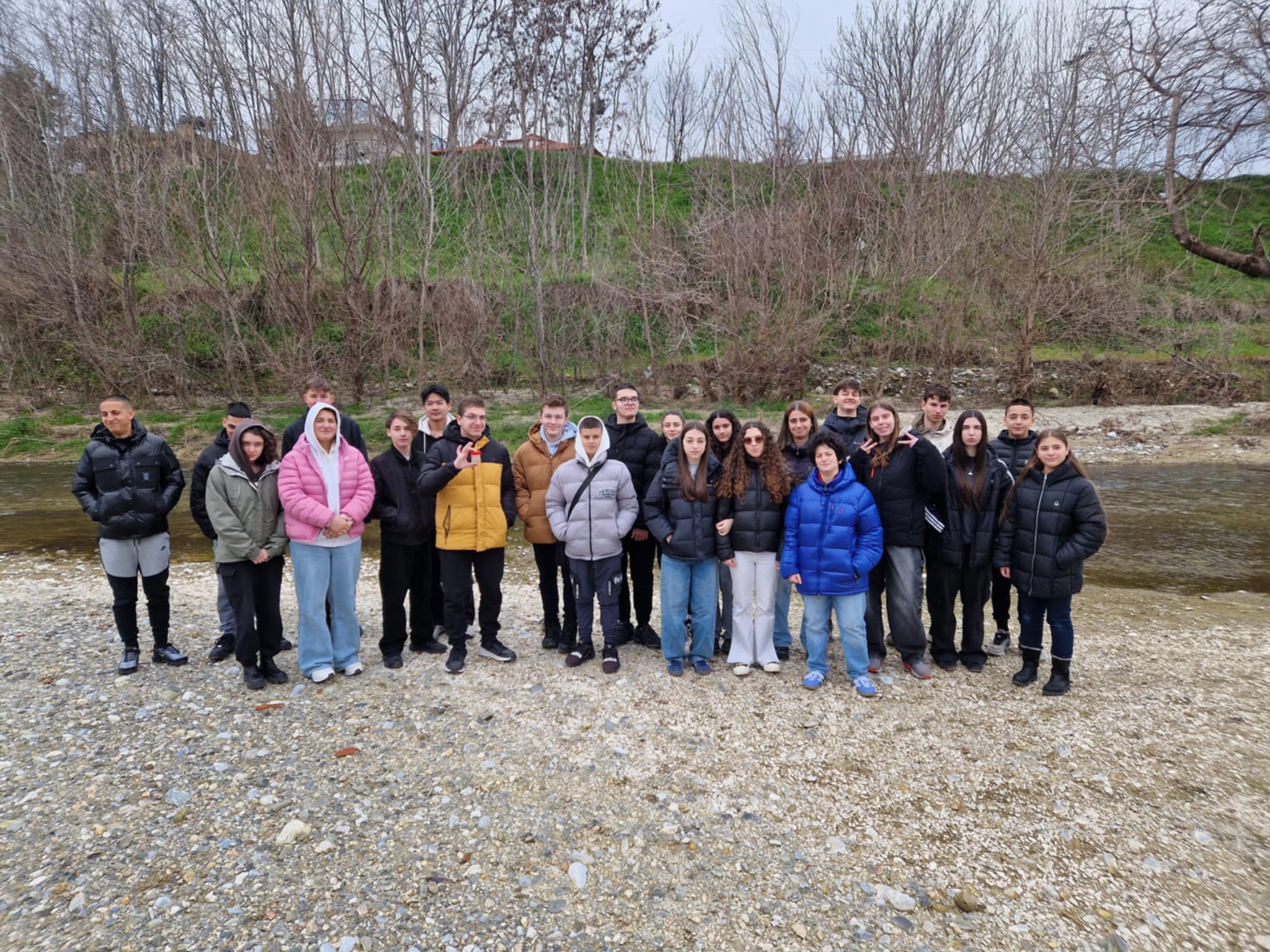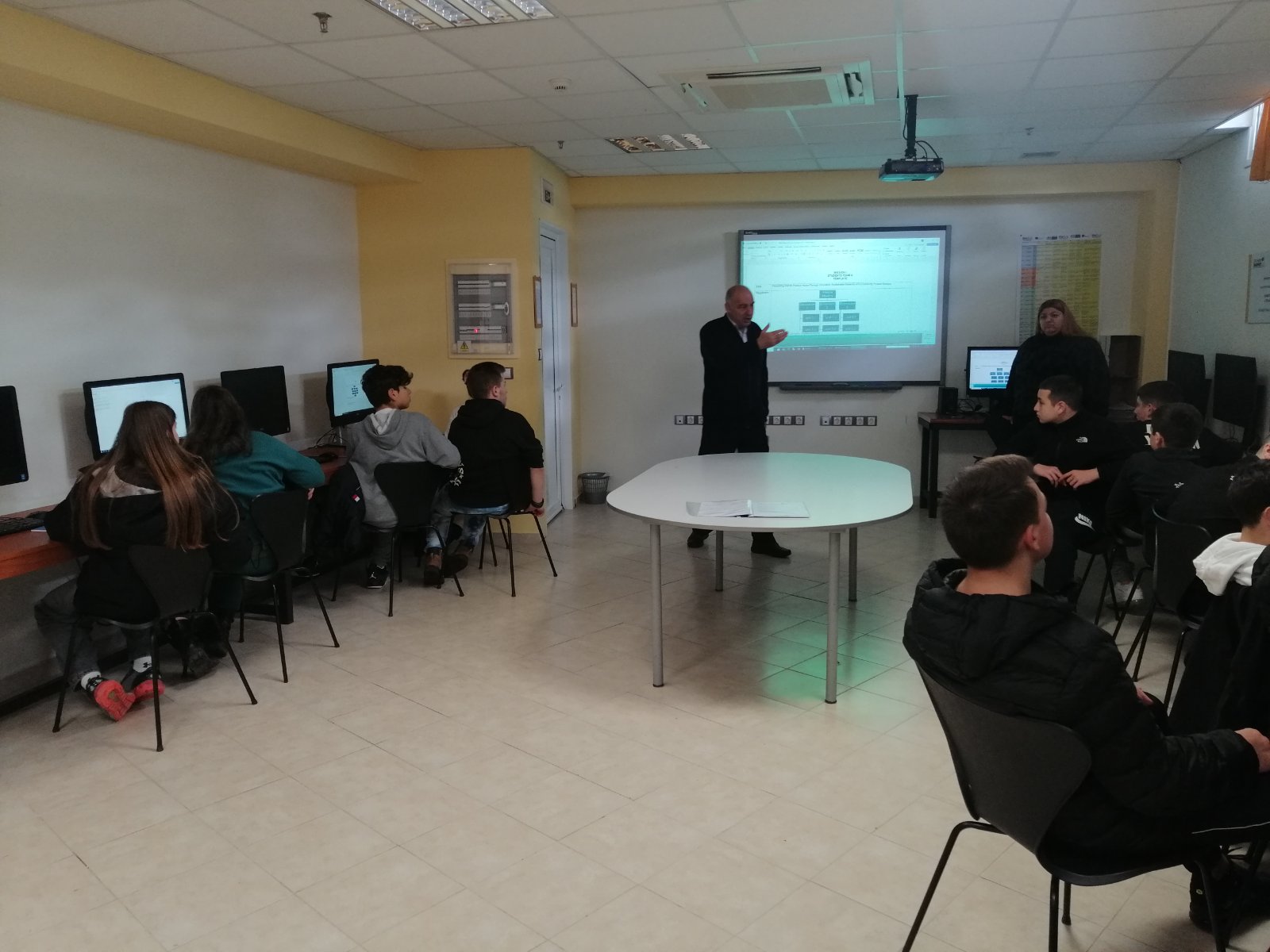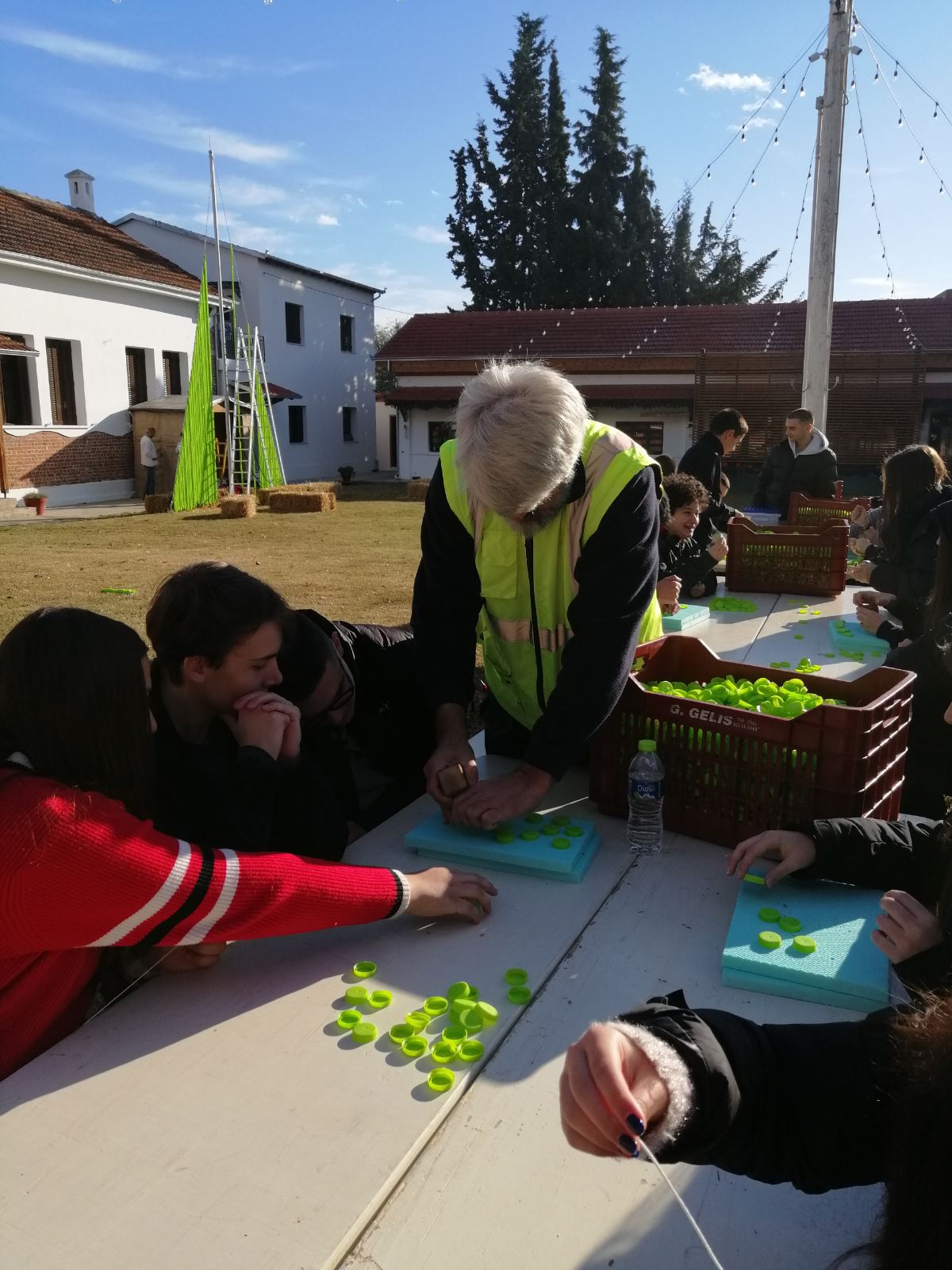
PLATON Schools from Katerini, Greece, joined the Blue Schools and participated in the European Horizon Program "SHORE" receiving funding for the implementation of educational activities on the management of plastic waste in local waters. The project named "Towards a Zero Marine Plastics Education through Mission Based Learning co creation approach" (ZeroMarinePlasticsEdu) involved four interrelated phases of Prevention, Mitigation, Elimination and Remediation of plastic pollution, as well as monitoring and control of environmental pollutants. Applying a Mission-based Co-Creation approach, students were trained on this subject and were actively involved in the learning process.
In order to make the project a success, the school's director, Mr. Anestis Papadopoulos, organized information and training meetings for the school's teachers who worked on the project. Then, the teachers proceeded to the design of the learning scenarios and the description of the missions that the students were asked to carry out:
Mission i. Prevention through innovation by providing evidence on the importance of sustainable materials and product designs that reduce waste, such as bio- and marine biodegradable alternatives to traditional plastics or new product designs that minimize waste.
Mission ii. mitigation strategies by organizing local clean-up efforts, developing campaigns to promote recycling and responsible waste management in the school and community, and exploring the science behind circular tools and technologies.
Mission iii. Eliminate and restore by designing prototypes for marine debris collection or developing ideas for recycling or recycling plastic waste into new products. Engaging with local environmental initiatives could provide practical experience in cleaning operations.
Mission iv. Monitor and raise awareness by participating in citizen science projects to collect data on pollution levels in the sea and rivers of the Pieria region, analyze trends and communicate findings through presentations, social media campaigns or school newsletters.

The "ZeroMarinePlasticsEdu" project aimed to address marine plastic pollution through a comprehensive educational approach that integrates prevention, mitigation, elimination, and monitoring strategies. The project engaged students in a cyclic learning process where they took on missions to address specific aspects of marine plastic pollution. This method not only educates students on the environmental impact of plastics but also empowers them to devise and implement practical solutions.
The purpose of the project is twofold: to reduce plastic pollution in the Mediterranean through hands-on student engagement and to enhance ocean and water literacy among the school community. Activities include designing sustainable products, organizing clean-up events, creating awareness campaigns, and conducting scientific research on pollution levels.
Through these activities, the project seeked to instill a sense of environmental stewardship in students and the community, fostering a culture of sustainability and proactive environmental action. By aligning with the Mission Ocean objectives and incorporating a European dimension, the project aims to contribute to a broader understanding and reduction of marine plastic pollution across Europe.
From September 2024 to February 2025, the "ZeroMarinePlasticsEdu" project achieved significant milestones in its mission to combat marine plastic pollution through education and community engagement. Key accomplishments include:
- Mission-Based Learning Co-Creation (MBLcc) Implementation: Successfully engaged students in four interconnected missions focusing on prevention, mitigation, elimination, and monitoring of plastic pollution. Each team of students not only completed their assigned tasks but also set up challenges for the next team, fostering a continuous learning cycle.
- Innovative Educational Outcomes: Students developed sustainable alternatives to conventional plastics, created prototypes for collecting marine litter, and engaged in citizen science projects. Over 20 students participated, collecting data on pollution levels in the Pieria district, which were analyzed and shared through various media.
- Community Engagement: Organized multiple clean-up efforts and recycling campaigns within the school and the local community. These efforts led to the collection, management and exploitation of over 500 kg of plastic waste, significantly raising awareness and promoting responsible waste management practices.
- Collaborative Efforts: Partnered with local NGOs, municipal waste management services, and educational institutions, which facilitated the integration of advanced recycling strategies and environmental education workshops. Over 10 events were organized, including a major workshop attended by local stakeholders.
- European Dimension: Established connections with other Blue Schools across Europe through virtual meetings and shared projects, enriching the project's scope and impact.



Συγχαρητήρια! Αξιέπαινο όλο το έργο σας!👍😀
Please log in or sign up to comment.